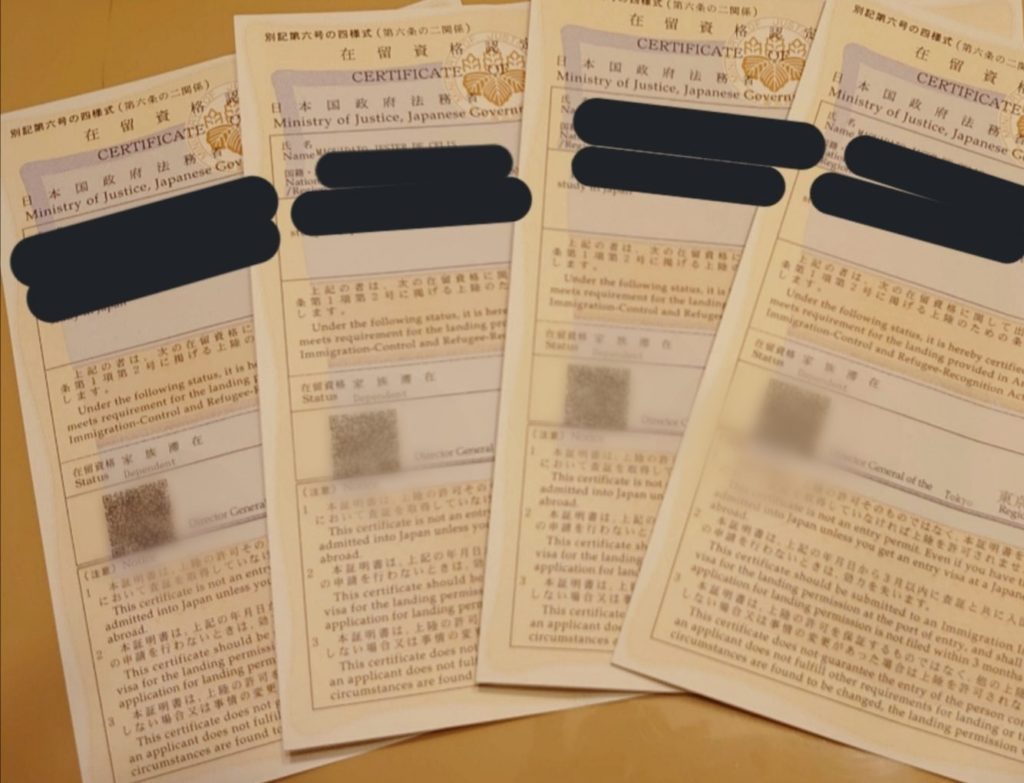How to enter Japan after COE is approved -2024 Version-

2023,02,10
We would like to explain what you should do to enter Japan after you applied for the Certificate of Eligibility from Japan, and have been approved.
Get your COE
When your COE is approved, have your relatives in Japan or your immigration lawyer (Gyousei-shoshi) mail it to you in a traceable way such as Express Mail Service, EMS, DHL, etc.
If you choose to receive the COE via email from the immigration office, please have them transfer it to you.
Application for a visa at a Japanese embassy/consulate

After receiving your COE, you need to apply for a visa to the Japanese embassy or the Japanese consulate in your country. Bring your photo, visa application form, and other necessary documents to the Japanese embassy/consulate. Required documents vary depending on the embassy. Also, some embassies require an appointment. We recommend you call the embassy in advance to confirm. After about a week of examination, you will receive your passport with the visa seal affixed.
The time from application to receipt of the visa varies from country to country, but it is approximately a week or so. During this time, you need to leave your passport with them, and you will not be able to leave the country.
*As each embassy or consulate has different procedures for making appointments, required documents, and processing times, we advise you to check with your consulate.
Note
While your Certificate of Eligibility (COE) approval increases your chances, there’s still a slim possibility of visa denial following an examination at the Japanese embassy/consulate in your home country. I haven’t experienced this with my clients, though.
In this case, the Japanese embassy/consulate will not tell you the reasons. If you cannot get a visa issued, you cannot come to Japan even though you have a COE.
Validity of COE

The Certificate of Eligibility is valid for three months from the issue date. Therefore, you need to schedule your entry into Japan within this time frame. If you do not arrive in Japan within three months after the COE is issued, the COE will become invalid.
As a special exception to the spread of coronavirus infection, the validity period had been set to 6 months, but that measure ended with the COE issued on July 31, 2022.
If you cannot arrive in Japan within three months, you need to apply again for the COE.
When Landing Japan

Remember to have COE with you when you land in Japan as you’ll be asked to show it at the arrival airport.
You will receive your residence card at the airport upon arrival. The resident card will show the status of residence granted, the period of stay, and the date of expiration of the period of stay.
Once your place of stay (residence) is determined, you must register your address at the municipal office, which has jurisdiction over your address within 14 days.
*Foreigners whose period of stay is less than three months are not eligible for resident registration.
We are pleased to help you apply for COE. Please contact us!
Profile
Ami Ito Immigration lawyer in Tokyo, Japan
– Spent high school years in the U.K. and graduated from a local school.
– Studied mainly intercultural communication at Sophia University’s Faculty of Foreign Languages, English Department.
– Worked in the overseas department of SEIKO for 11 years after graduation.
– Over 10 years of experience teaching English to high school students, with a TOEIC score of 970 and a Class A level in the United Nations Associations Test of English.
– Serves as a board member in charge of international affairs at the Chiba Administrative Scrivener Association.
– Officially registered on the Financial Services Agency’s “List of Professionals (Administrative Scriveners) in Chiba Prefecture capable of providing services in foreign languages.”
News and Blog








